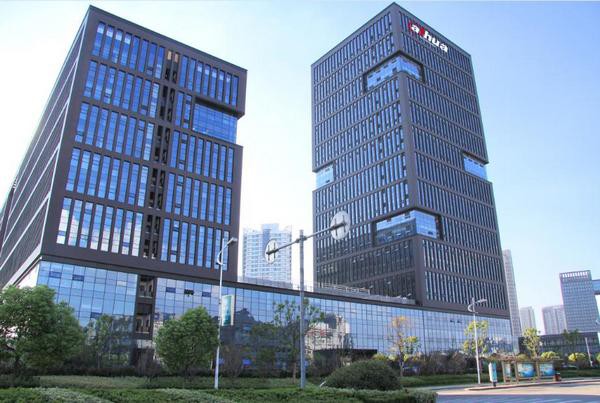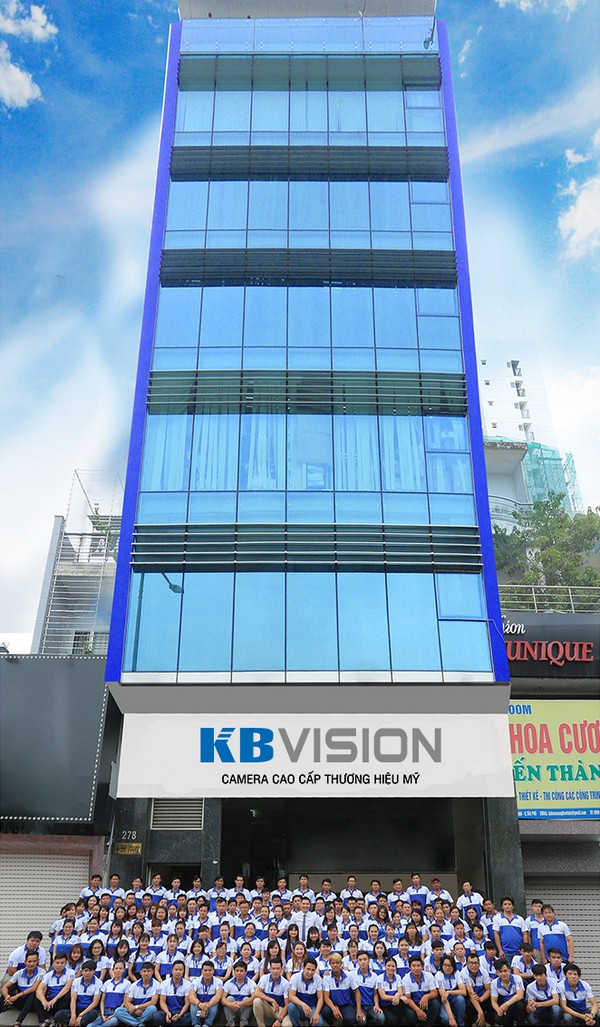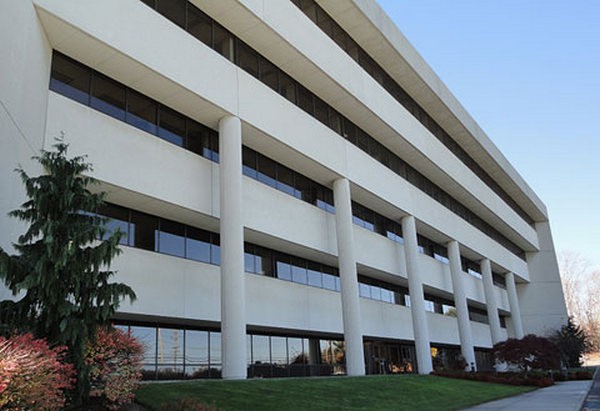Buy Steroids Online
Proviron and hair loss
NỘI DUNG TRANG
Learn about the relationship between Proviron and hair loss, including potential side effects and how to mitigate them. Understand the mechanisms behind hair loss and explore alternative treatments for hair loss prevention.
| Payment: | Bitcoin, LiteCoin, Zelle, Credit Cards, Western Union, MoneyGram |
| Delivery: | Express (2-5 days), Fedex, DHL |
| Prescription: | OVER THE COUNTER |
| Where to Buy STEROIDS online? | https://dzienotwarty.edu.pl |
Where to Buy Anabolic Steroids Online:
Proviron and Hair Loss: What You Need to Know
Popular Questions about Proviron and hair loss:
What is Proviron?
Proviron is a synthetic androgen that is used to treat low testosterone levels in men.
Does Proviron cause hair loss?
Yes, Proviron can cause hair loss in individuals who are genetically predisposed to male pattern baldness.
How does Proviron cause hair loss?
Proviron can cause hair loss by increasing the levels of dihydrotestosterone (DHT) in the body. DHT is a hormone that is responsible for shrinking hair follicles and eventually leading to hair loss.
Can hair loss from Proviron be reversed?
Unfortunately, hair loss caused by Proviron cannot be reversed. However, there are treatments available to slow down the progression of hair loss and promote hair regrowth.
Are there any ways to prevent hair loss while taking Proviron?
While there is no guaranteed way to prevent hair loss while taking Proviron, some individuals have reported success in using hair loss prevention treatments such as minoxidil or finasteride.
Is hair loss a common side effect of Proviron?
Hair loss is a relatively uncommon side effect of Proviron, but it can occur in individuals who are genetically predisposed to male pattern baldness.
Can Proviron be used by individuals with a history of hair loss?
It is generally not recommended for individuals with a history of hair loss to use Proviron, as it can exacerbate the condition and lead to further hair loss.
What should I do if I experience hair loss while taking Proviron?
If you experience hair loss while taking Proviron, it is recommended to consult with a healthcare professional or a dermatologist who can provide guidance and recommend appropriate treatments.
What is Proviron?
Proviron is an androgen and anabolic steroid medication that is used mainly in the treatment of low testosterone levels in men. It is also sometimes used to enhance athletic performance and improve muscle growth.
Can Proviron cause hair loss?
Yes, Proviron can potentially cause hair loss in individuals who are genetically predisposed to male pattern baldness. This is because Proviron can increase the levels of dihydrotestosterone (DHT) in the body, which is known to contribute to hair loss.
How does Proviron cause hair loss?
Proviron can cause hair loss by increasing the levels of dihydrotestosterone (DHT) in the body. DHT is a hormone that binds to hair follicles and causes them to shrink, leading to hair thinning and eventual hair loss.
Are there any ways to prevent hair loss while taking Proviron?
There are several ways to potentially prevent hair loss while taking Proviron. One option is to use a medication called finasteride, which can help to block the conversion of testosterone into DHT. Another option is to use minoxidil, a topical solution that can help to stimulate hair growth. Additionally, maintaining a healthy lifestyle and using gentle hair care products can also help to minimize hair loss.
Is hair loss from Proviron permanent?
The hair loss caused by Proviron can be permanent if the hair follicles have been significantly damaged. However, if the hair loss is caught early and appropriate measures are taken to prevent further damage, it may be possible to regrow some of the lost hair.
How to order steroids online?
Proviron and Hair Loss: Causes, Effects, and Prevention
Proviron is a medication commonly used in the treatment of low testosterone levels in men. However, one of the side effects that users may experience is hair loss. Hair loss can be a distressing side effect, especially for individuals who are already concerned about their hair. In this article, we will explore the causes of hair loss associated with Proviron, its effects on the hair, and some preventive measures that can be taken.
The primary cause of hair loss with Proviron is its androgenic activity. Proviron is a derivative of dihydrotestosterone (DHT), a hormone that plays a role in hair growth. DHT is known to bind to the hair follicles, causing them to shrink and eventually leading to hair loss. This is particularly problematic for individuals who are genetically predisposed to male pattern baldness, as they are more sensitive to the effects of DHT.
The effects of Proviron on hair loss can vary from person to person. Some individuals may experience minimal hair loss, while others may experience significant thinning or even complete baldness. The severity of hair loss can also depend on the dosage and duration of Proviron use. It is important to note that hair loss caused by Proviron is usually reversible once the medication is discontinued.
There are several preventive measures that can be taken to minimize the risk of hair loss while using Proviron. One option is to use a hair loss prevention shampoo or treatment, which can help to strengthen the hair follicles and promote hair growth. Additionally, individuals can consider using a DHT blocker, which can inhibit the conversion of testosterone to DHT and reduce the risk of hair loss.
In conclusion, Proviron can cause hair loss due to its androgenic activity. The severity of hair loss can vary, but it is usually reversible once the medication is stopped. Taking preventive measures such as using hair loss prevention products and DHT blockers can help minimize the risk of hair loss while using Proviron.
What Is Proviron and How Does It Affect Hair Loss?
Proviron is the brand name for the synthetic steroid hormone Mesterolone. It is primarily used in the treatment of low testosterone levels in men and is also sometimes prescribed for infertility issues. Proviron is known for its androgenic properties, meaning it promotes the development and maintenance of male characteristics.
When it comes to hair loss, Proviron can have both positive and negative effects. On one hand, it can help prevent hair loss caused by an excess of estrogen in the body. By binding to the aromatase enzyme, Proviron inhibits the conversion of testosterone into estrogen, reducing the estrogen levels in the body. Since high estrogen levels can contribute to hair loss, Proviron can potentially help in preventing it.
On the other hand, Proviron itself has androgenic properties, which means it can potentially accelerate hair loss in individuals who are genetically predisposed to male pattern baldness. Male pattern baldness is primarily caused by a combination of genetic factors and the hormone dihydrotestosterone (DHT). DHT is derived from testosterone and is known to shrink hair follicles, leading to hair loss.
While Proviron does not directly convert to DHT, it can enhance the effects of DHT by increasing the binding affinity of DHT to androgen receptors in the scalp. This can potentially speed up the hair loss process in individuals who are already susceptible to male pattern baldness.
It is important to note that the impact of Proviron on hair loss can vary from person to person. Some individuals may experience minimal hair loss or no hair loss at all, while others may notice a significant increase in hair shedding. Genetic factors, individual sensitivity, and dosage can all play a role in determining the effects of Proviron on hair loss.
To minimize the risk of hair loss while taking Proviron, it is recommended to use it under the guidance of a healthcare professional and to monitor your hair health closely. Additionally, incorporating hair loss prevention strategies such as a balanced diet, regular exercise, stress management, and avoiding harsh styling practices can also help maintain hair health.
Understanding the Link Between Proviron and Hair Loss
Proviron, also known as Mesterolone, is an androgen and anabolic steroid medication that is commonly used to treat low testosterone levels in men. While it can be effective for its intended purpose, one of the potential side effects of Proviron is hair loss.
Causes of Hair Loss
Hair loss can occur due to various factors, including genetics, hormonal imbalances, and certain medications. In the case of Proviron, the hormone imbalance caused by the medication can contribute to hair loss in susceptible individuals.
Effects of Proviron on Hair
Proviron can accelerate hair loss in individuals who are genetically predisposed to male pattern baldness. This is because Proviron can increase the levels of dihydrotestosterone (DHT) in the body, which is a hormone that is known to contribute to hair loss.
DHT binds to the hair follicles, causing them to shrink and eventually stop producing new hair. Over time, this can lead to thinning hair and baldness in affected individuals.
Prevention and Mitigation
If you are concerned about the potential hair loss side effect of Proviron, there are several steps you can take to mitigate the risk:
- Consult with a healthcare professional: Before starting any medication, including Proviron, it is important to consult with a healthcare professional who can assess your individual risk factors and provide guidance.
- Consider alternative treatments: If you are concerned about the potential hair loss side effect, you may want to explore alternative treatments for low testosterone that do not carry the same risk.
- Monitor your hair: Pay attention to any changes in your hair, such as increased shedding or thinning. If you notice any significant changes, it is important to speak with your healthcare professional.
- Use hair loss prevention methods: There are various hair loss prevention methods available, such as using minoxidil or finasteride, which can help slow down or prevent hair loss.
It is important to remember that not everyone who takes Proviron will experience hair loss, and the severity of the side effect can vary between individuals. By being proactive and taking steps to mitigate the risk, you can make an informed decision about whether Proviron is the right medication for you.
The Role of DHT in Hair Loss
Dihydrotestosterone (DHT) is a hormone that plays a significant role in the development and progression of hair loss. It is a byproduct of testosterone, a male sex hormone, and is derived from the conversion of testosterone by the enzyme 5-alpha reductase.
DHT is responsible for the miniaturization of hair follicles, leading to the thinning and eventual loss of hair. It binds to androgen receptors in the hair follicles, causing them to shrink and produce thinner and shorter hair strands. Over time, the hair follicles become incapable of producing new hair, resulting in permanent hair loss.
While DHT is essential for the development of male characteristics during puberty, it can have detrimental effects on hair follicles in individuals who are genetically predisposed to hair loss. The sensitivity of hair follicles to DHT is determined by genetic factors, with some individuals being more susceptible to its effects than others.
Proviron, a synthetic androgen and anabolic steroid, has been reported to increase DHT levels in the body. This can further contribute to hair loss in individuals who are already susceptible to DHT-induced hair follicle miniaturization. Therefore, it is important to consider the potential risks of using Proviron, especially for individuals with a history of hair loss or genetic predisposition to hair thinning.
To prevent or minimize hair loss associated with DHT, there are several strategies that can be employed. One option is the use of medications that inhibit the production of DHT, such as finasteride or dutasteride. These medications work by blocking the enzyme 5-alpha reductase, thereby reducing the conversion of testosterone to DHT.
Another approach is the use of topical treatments, such as minoxidil, which can help to stimulate hair growth and counteract the effects of DHT on hair follicles. Additionally, maintaining a healthy lifestyle, including a balanced diet and regular exercise, can contribute to overall hair health and potentially slow down the progression of hair loss.
It is important to consult with a healthcare professional or a dermatologist before starting any medication or treatment for hair loss. They can provide personalized recommendations based on individual needs and medical history.
Proviron’s Impact on DHT Levels
Proviron, also known as Mesterolone, is an androgen and anabolic steroid medication. It is commonly used to treat low testosterone levels in men and to enhance athletic performance. However, one of the potential side effects of Proviron is its impact on dihydrotestosterone (DHT) levels in the body.
What is DHT?
DHT is a hormone that plays a crucial role in male sexual development and characteristics. It is derived from testosterone and is responsible for the development of male secondary sexual characteristics, such as facial hair growth, deepening of the voice, and increased muscle mass.
How does Proviron affect DHT levels?
Proviron has a high affinity for binding to androgen receptors in the body. This binding process can lead to an increase in DHT levels. DHT is formed when testosterone interacts with the enzyme 5-alpha-reductase. Proviron inhibits this enzyme, preventing the conversion of testosterone into DHT. As a result, Proviron can potentially lower DHT levels in the body.
Effects of altered DHT levels
Altered DHT levels can have various effects on the body. Some individuals may experience an increase in hair growth, while others may experience hair loss. DHT is known to contribute to male pattern baldness, a condition characterized by progressive hair loss on the scalp. Therefore, the inhibition of DHT production by Proviron may help prevent or slow down hair loss in individuals predisposed to male pattern baldness.
Prevention and management of hair loss
If you are concerned about hair loss while taking Proviron, there are several measures you can take to prevent or manage this side effect:
- Consult with a healthcare professional: Discuss your concerns with a healthcare professional who can provide guidance and advice on managing hair loss while taking Proviron.
- Consider alternative treatments: If hair loss becomes a significant concern, you may want to explore alternative treatments for low testosterone or athletic performance enhancement that do not have the same impact on DHT levels.
- Use hair loss prevention products: There are various hair loss prevention products available on the market, such as shampoos, conditioners, and topical treatments. These products may help slow down or prevent hair loss.
- Adopt a healthy lifestyle: Maintaining a healthy lifestyle, including a balanced diet, regular exercise, and stress management, can contribute to overall hair health.
It is important to note that individual responses to Proviron and its impact on DHT levels may vary. It is always recommended to consult with a healthcare professional for personalized advice and guidance.
Common Causes of Hair Loss in Proviron Users
Proviron, also known as mesterolone, is a synthetic androgen and anabolic steroid medication that is commonly used by bodybuilders and athletes. While Proviron is primarily used to treat low testosterone levels, it is also known to cause hair loss as a side effect in some users.
Hormonal Imbalance
One of the main causes of hair loss in Proviron users is a hormonal imbalance. Proviron can disrupt the normal balance of hormones in the body, leading to an increase in dihydrotestosterone (DHT) levels. DHT is a hormone that is known to cause hair follicles to shrink, resulting in hair loss.
Genetic Predisposition
Another common cause of hair loss in Proviron users is a genetic predisposition. Some individuals may be more susceptible to hair loss due to their genetic makeup. If you have a family history of hair loss, you may be more likely to experience hair loss while using Proviron.
Increased Sensitivity to DHT
Some Proviron users may have an increased sensitivity to DHT, which can further contribute to hair loss. Even a slight increase in DHT levels can trigger hair loss in individuals who are genetically predisposed to it.
Stress and Lifestyle Factors
Stress and lifestyle factors can also play a role in hair loss among Proviron users. High levels of stress, poor diet, lack of sleep, and smoking can all contribute to hair loss. These factors can weaken hair follicles and make them more susceptible to the effects of Proviron.
Prevention and Treatment
If you are experiencing hair loss while using Proviron, there are steps you can take to prevent further hair loss and promote hair growth. These include:
- Using hair loss prevention products, such as shampoos and treatments that contain ingredients like minoxidil or finasteride.
- Eating a balanced diet that is rich in vitamins and minerals that promote hair health.
- Reducing stress levels through relaxation techniques, exercise, or therapy.
- Avoiding hairstyles that pull on the hair, such as tight ponytails or braids.
- Consulting with a healthcare professional or dermatologist for further advice and treatment options.
It is important to note that hair loss caused by Proviron is usually temporary and will often reverse once the medication is discontinued. However, it is always best to consult with a healthcare professional for personalized advice and guidance.
Recognizing the Signs of Hair Loss from Proviron
Proviron is a medication that is commonly used for treating low testosterone levels in men. While it can be effective in increasing testosterone levels, one of the potential side effects of Proviron is hair loss. It is important to recognize the signs of hair loss from Proviron so that you can take appropriate action to prevent further damage.
1. Thinning Hair
One of the first signs of hair loss from Proviron is thinning hair. You may notice that your hair is becoming less dense and that your scalp is more visible. This can occur gradually over time or may be more sudden in some cases.
2. Receding Hairline
Another sign of hair loss from Proviron is a receding hairline. You may notice that your hairline is moving further back on your forehead, creating a more pronounced “M” shape. This can be particularly noticeable in men who already have a genetic predisposition to male pattern baldness.
3. Increased Shedding
If you are experiencing hair loss from Proviron, you may notice an increase in shedding. This means that you may see more hair than usual on your pillow, in the shower drain, or on your hairbrush. Pay attention to any changes in your hair shedding patterns.
4. Thinning Crown
In addition to a receding hairline, hair loss from Proviron can also affect the crown of the head. You may notice that the hair at the top of your head is becoming thinner and more sparse. This can contribute to an overall thinning appearance.
5. Itchy or Irritated Scalp
Some individuals may experience an itchy or irritated scalp as a result of hair loss from Proviron. This can be accompanied by redness or flakiness. If you notice any changes in the condition of your scalp, it is important to seek medical advice.
6. Hair Breakage
In some cases, hair loss from Proviron may result in hair breakage. You may notice that your hair is becoming more brittle and prone to breakage, especially when styling or brushing. This can contribute to the overall thinning of the hair.
7. Slow Hair Growth
Another sign of hair loss from Proviron is slow hair growth. If you notice that your hair is taking longer to grow or that it appears to be growing at a slower rate than usual, it may be a result of Proviron-induced hair loss.
If you are experiencing any of these signs of hair loss from Proviron, it is important to consult with a healthcare professional. They can provide guidance on potential treatment options and help you determine the best course of action to prevent further hair loss.
Preventing Hair Loss While Taking Proviron
While Proviron may have the potential to cause hair loss in some individuals, there are steps you can take to minimize the risk and prevent hair loss while taking this medication. Here are some tips:
- Consult with your healthcare provider: Before starting Proviron or any other medication, it is important to consult with your healthcare provider. They can provide you with personalized advice based on your medical history and help you determine if Proviron is the right choice for you.
- Use a lower dosage: Hair loss is more likely to occur at higher dosages of Proviron. If you are concerned about hair loss, you can discuss with your healthcare provider the possibility of using a lower dosage. This may help reduce the risk of hair loss while still providing the desired benefits.
- Combine with hair loss prevention treatments: There are various treatments available to prevent hair loss, such as minoxidil or finasteride. These treatments can be used in combination with Proviron to help minimize the risk of hair loss. However, it is important to consult with your healthcare provider before starting any additional treatments.
- Take breaks from Proviron: If you are concerned about hair loss, you can discuss with your healthcare provider the possibility of taking breaks from Proviron. This can help give your hair follicles a chance to recover and minimize the risk of hair loss.
- Maintain a healthy lifestyle: A healthy lifestyle can contribute to overall hair health. Make sure to eat a balanced diet, exercise regularly, manage stress levels, and get enough sleep. These lifestyle factors can help support healthy hair growth.
- Consider alternative medications: If you are experiencing significant hair loss while taking Proviron, you can discuss with your healthcare provider the possibility of switching to an alternative medication. They may be able to recommend a different medication that is less likely to cause hair loss.
Remember, everyone’s response to medications can vary, and it is important to consult with your healthcare provider for personalized advice. By following these tips and working closely with your healthcare provider, you can help minimize the risk of hair loss while taking Proviron.
Effective Hair Loss Prevention Strategies for Proviron Users
Proviron is an androgenic-anabolic steroid that is commonly used by bodybuilders and athletes to enhance performance and promote muscle growth. However, one of the potential side effects of Proviron is hair loss. If you are a Proviron user and concerned about hair loss, there are several strategies you can implement to prevent or minimize this side effect.
1. Use a Hair Loss Prevention Shampoo
One of the simplest and most effective ways to prevent hair loss is to use a shampoo specifically designed to combat hair loss. Look for shampoos that contain ingredients such as ketoconazole, saw palmetto, or biotin, as these have been shown to help prevent hair loss and promote hair growth.
2. Take Hair Supplements
There are various hair supplements available on the market that can help promote hair growth and prevent hair loss. Look for supplements that contain vitamins and minerals such as biotin, zinc, and vitamin E, as these are known to support healthy hair growth.
3. Avoid Heat Styling Tools
Excessive use of heat styling tools such as hair dryers, straighteners, and curling irons can damage the hair and contribute to hair loss. Try to limit the use of these tools and opt for air drying your hair whenever possible.
4. Eat a Balanced Diet
A healthy diet plays a crucial role in maintaining healthy hair. Make sure to include foods rich in vitamins and minerals, such as fruits, vegetables, lean proteins, and whole grains, in your diet. Additionally, foods high in omega-3 fatty acids, such as salmon and walnuts, can also promote hair health.
5. Minimize Stress
Stress can contribute to hair loss, so it’s important to find ways to manage and minimize stress in your life. Engaging in activities such as yoga, meditation, or regular exercise can help reduce stress levels and promote overall well-being, including hair health.
6. Consult a Healthcare Professional
If you are experiencing significant hair loss while using Proviron, it’s important to consult a healthcare professional. They can assess your individual situation and provide personalized recommendations or treatments to help prevent further hair loss.
By implementing these strategies, you can effectively prevent or minimize hair loss while using Proviron. Remember, it’s important to prioritize your overall health and well-being when using any medication or supplement.
Consulting a Healthcare Professional for Hair Loss Prevention
If you are experiencing hair loss and suspect that it may be related to the use of Proviron or any other medication, it is important to consult a healthcare professional for proper evaluation and guidance. A healthcare professional, such as a dermatologist or a trichologist, specializes in diagnosing and treating hair loss conditions.
During your consultation, the healthcare professional will assess your medical history, including any medications you are currently taking, and perform a physical examination of your scalp and hair. They may also order additional tests, such as blood tests or a scalp biopsy, to determine the underlying cause of your hair loss.
Based on the findings, the healthcare professional will provide you with personalized recommendations for hair loss prevention. These recommendations may include:
- Adjusting or discontinuing the use of Proviron or other medications that may be contributing to hair loss
- Prescribing alternative medications or treatments for your condition
- Suggesting lifestyle changes, such as a healthy diet and stress management, to promote hair health
- Referring you to other specialists, such as endocrinologists or nutritionists, if necessary
In addition to providing professional guidance, a healthcare professional can also monitor your progress and make any necessary adjustments to your hair loss prevention plan. They can offer support and answer any questions or concerns you may have throughout your journey to healthier hair.
Remember, self-diagnosis and self-treatment may not always be effective, and it is important to consult a healthcare professional for accurate diagnosis and appropriate treatment. They have the knowledge and expertise to help you address your hair loss concerns and improve the health of your hair.
Exploring Alternative Treatments for Hair Loss from Proviron
Hair loss is a common side effect of using Proviron, a medication commonly used for treating low testosterone levels in men. While Proviron can be effective in boosting testosterone levels, it can also lead to hair loss in some individuals. If you are experiencing hair loss from Proviron and are looking for alternative treatments, there are several options to consider.
1. Finasteride
Finasteride is a medication commonly used for treating male pattern baldness. It works by blocking the conversion of testosterone to dihydrotestosterone (DHT), which is the hormone responsible for hair loss. By reducing DHT levels, finasteride can help slow down or even reverse hair loss caused by Proviron.
2. Minoxidil
Minoxidil is a topical medication that is applied directly to the scalp. It works by increasing blood flow to the hair follicles, stimulating hair growth. While minoxidil cannot prevent hair loss caused by Proviron, it can help promote new hair growth and improve the overall appearance of thinning hair.
3. Low-Level Laser Therapy (LLLT)
LLLT is a non-invasive treatment that uses low-level lasers to stimulate hair growth. It works by increasing blood flow to the hair follicles and promoting cell metabolism. LLLT has been shown to be effective in treating hair loss caused by various factors, including medication-induced hair loss.
4. Hair Transplantation
If you have tried other treatments without success, hair transplantation may be an option to consider. During a hair transplant procedure, hair follicles are taken from areas of the scalp where hair is still growing and transplanted to the areas affected by hair loss. This can help restore a natural-looking hairline and improve the overall density of the hair.
5. Lifestyle Changes
While not a direct treatment for hair loss from Proviron, making certain lifestyle changes can help promote healthy hair growth. This includes maintaining a balanced diet, managing stress levels, avoiding excessive heat and chemical treatments, and using gentle hair care products.
It’s important to note that the effectiveness of these alternative treatments may vary from person to person. It is recommended to consult with a healthcare professional or a dermatologist to determine the best course of action for your specific situation.









